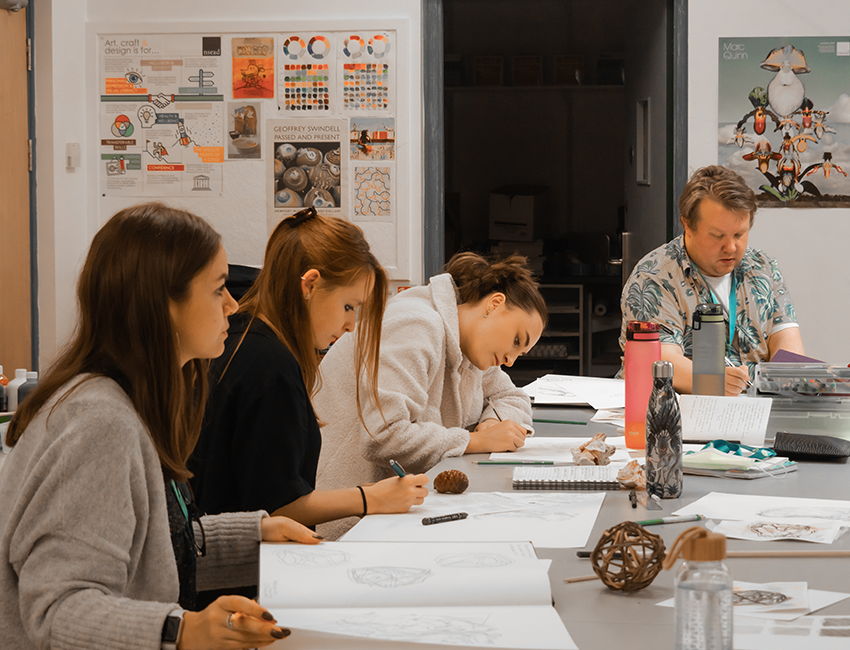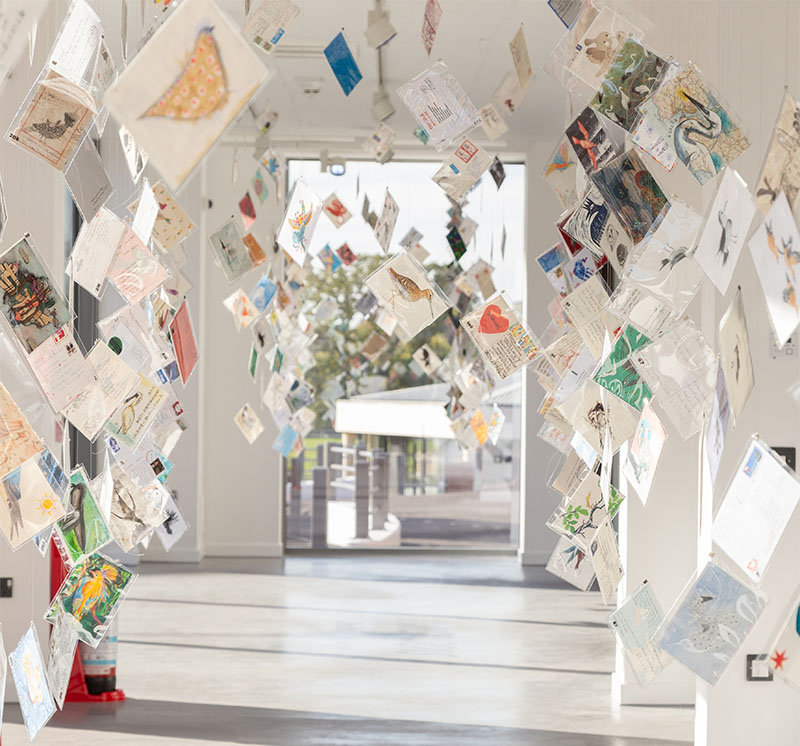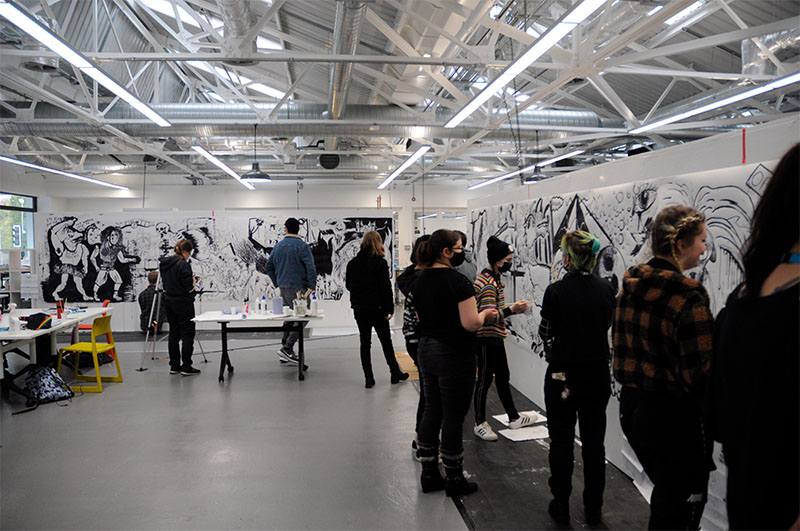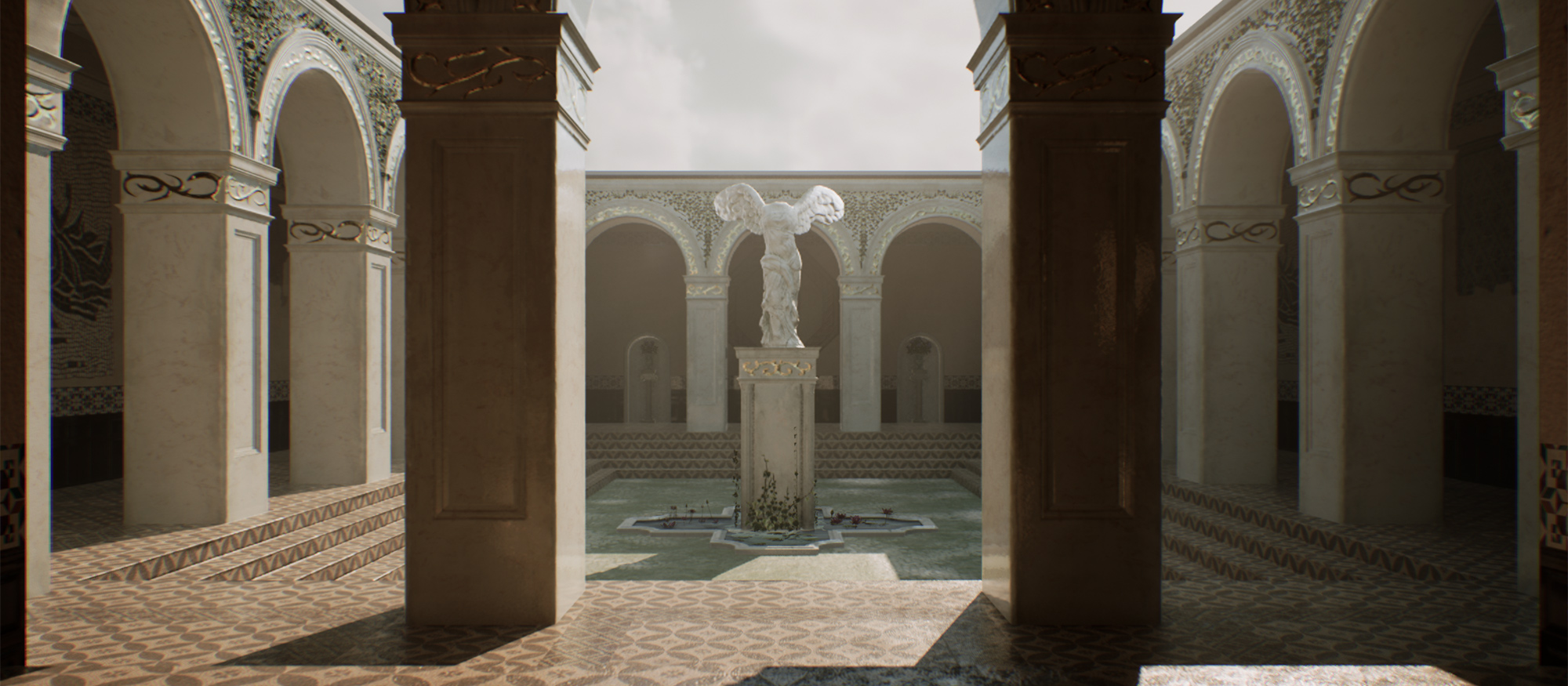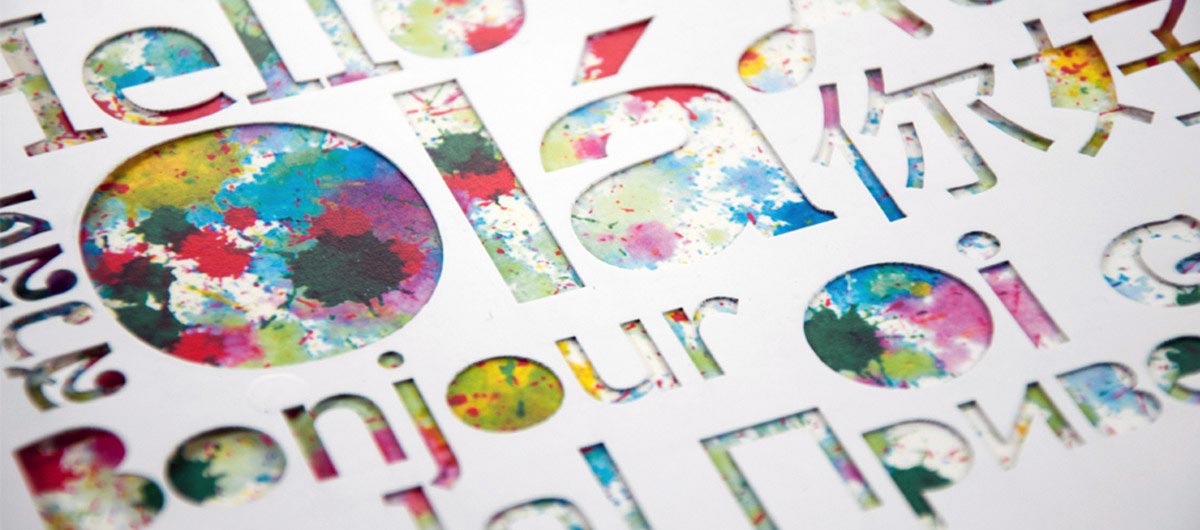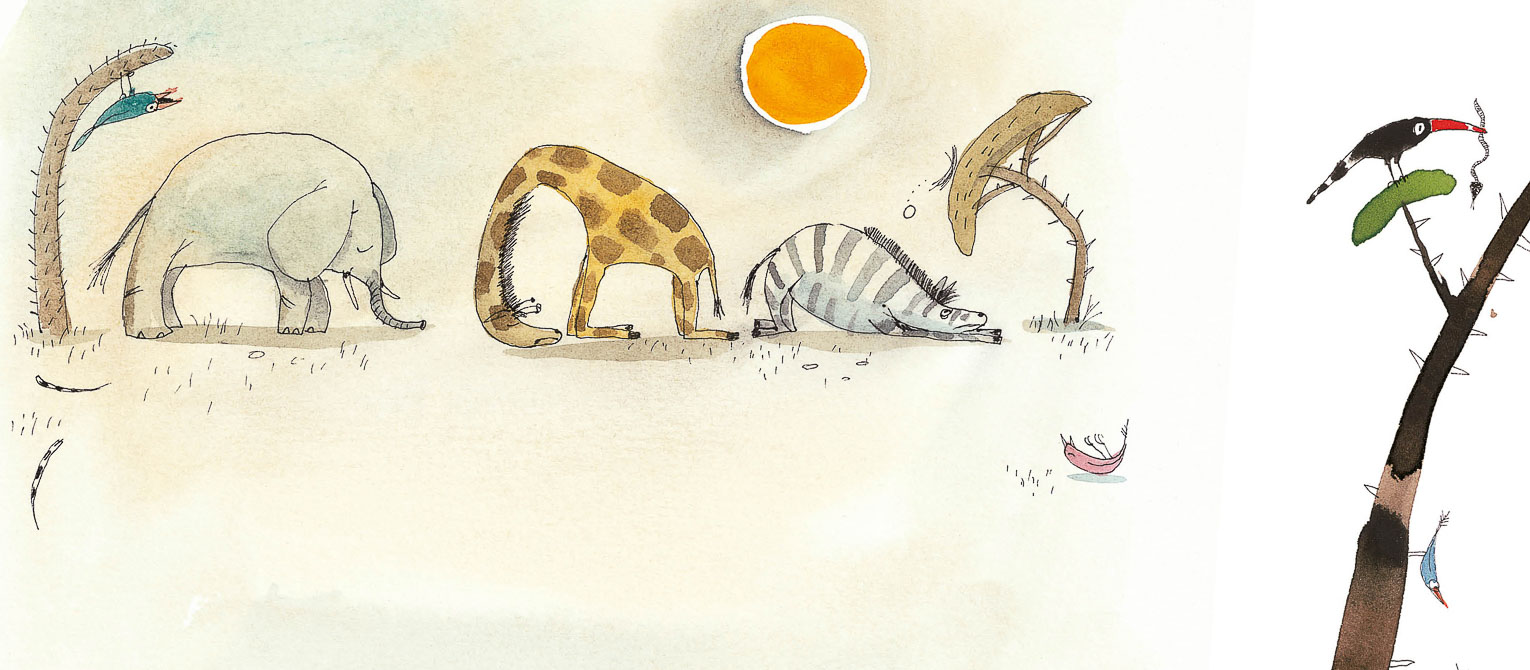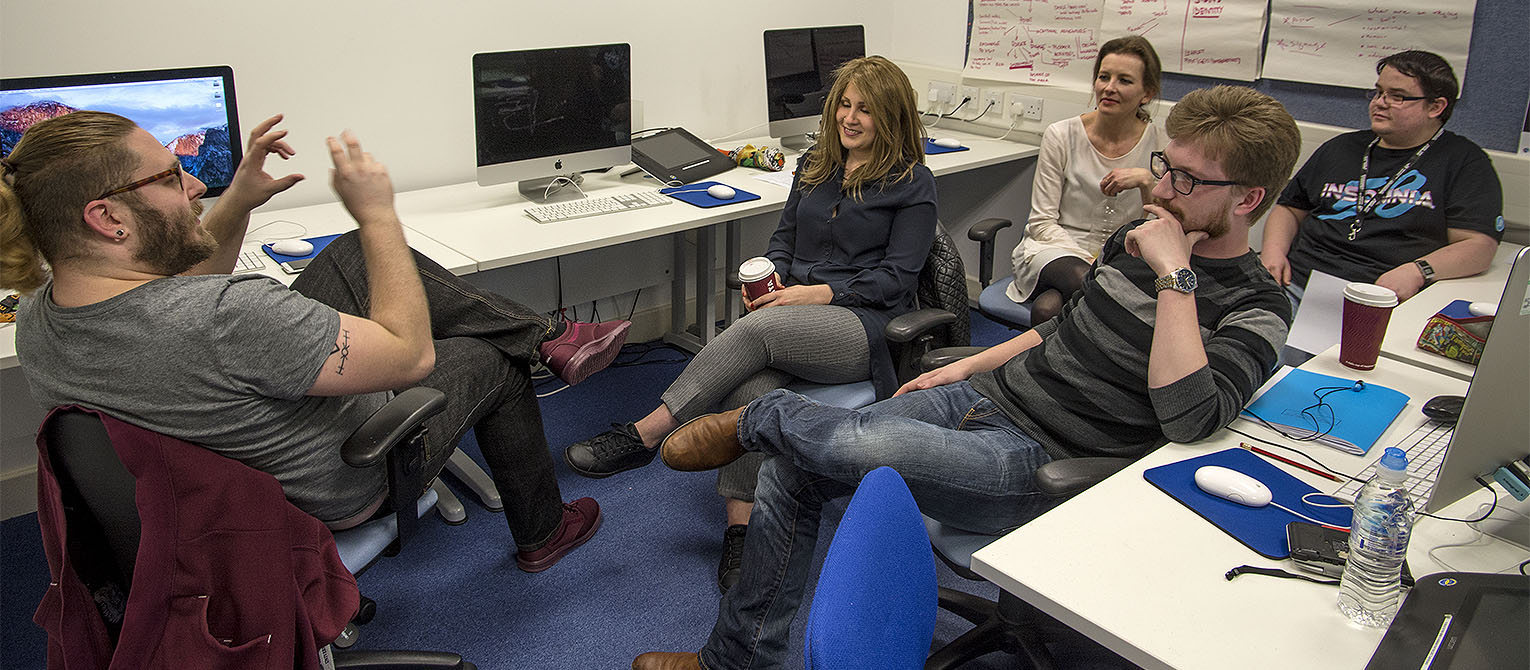At Worcester you’ll develop your creative practice and professional skills through workshops, studio critiques and one-to-one tutorials. You can also gain valuable professional experience and hear from visiting artists, all of which prepare you for a wide range of careers in the arts.
in the UK for art and design graduate prospects
students feel positive about the opportunities to explore ideas and concepts in depth
University of the Year finalist
Recognised for our graduate success, we’re shortlisted for University of the Year in the Times Higher Education Awards 2025.
Overview
Our Fine Art degree allows you to immerse yourself in a vibrant artistic community where you can explore and refine your creative practice. With your own personal studio space at the Art House, you’ll have the freedom to experiment with different mediums and techniques, from painting, print making and sculpture to digital media and photography. This studio-based course encourages collaboration and peer learning across year groups, building a real sense of community and creative exchange.
Workshops, studio critiques, and individual tutorials are key to your development as an artist, helping you build confidence in your ideas and artistic processes. You’ll also benefit from regular guest lectures from contemporary artists, giving you the chance to engage with the latest trends and ideas in the art world.
Throughout the course, you'll have access to specialist facilities that support your creative ambitions, including a print room, ceramics and casting workshop, digital media labs and audiovisual screening rooms.
You’ll get the opportunity to collaborate with industry professionals on live briefs, showcase your work in a final year exhibition, and explore your future options with a work-based placement. By the end of the course, you’ll be equipped with a strong portfolio and the skills to launch a successful career in the creative industries.
Course content
Each year you will study a mix of mandatory and optional modules to explore your creativity.
We regularly review our courses to reflect the latest research and developments in the subject area, as well as feedback from students, employers and the wider sector. As a result, modules may change to ensure the course remains current and relevant.
Optional modules will run if enough students choose to study them. It is not guaranteed that all modules will be offered every year.
Optional modules
Careers
Our course is designed to equip you with the practical and creative skills needed for a successful career in the arts. You'll be able to showcase your versatility as an artist through a diverse portfolio while also developing your communication, project management, and problem-solving abilities – vital skills in any workplace.
Our Fine Arts degree could be the first step towards your career as a:
- Advertising art director
- Art therapist
- Community arts worker
- Creative health worker
- Concept artist
- Gallery manager
- Graphic designer
- Illustrator
- Printmaker
- Arts administrator
- Conservator
- Exhibition designer
- Gallery curator
- Arts educator
Opportunities to progress
Opportunities to progress onto postgraduate study at Worcester include our Art and Design MPhil/PhD and Creative Media MA. If you’re looking to pursue teaching as a career you may be interested in our PGCE Primary or PGCE Secondary (Art and Design) courses.
Fine Art at Worcester
Course highlights
Teaching and assessment
You’ll explore Fine Art through studio tutorials, group discussion, seminars and workshops.
Assessment comes in many forms on this course. You’ll produce artwork portfolios, zines, online projects, proposals, learning journals, reflective pieces and solo and collaborative exhibitions.
Teaching and assessment contents
You are taught through a combination of:
Tutorials
The studio tutorial - that is the discussion between tutor and student in the presence of your work - remains the principle form
of teaching and learning in a fine art education.
Group Crits
Like the tutorial the group crit forms an essential, critical strand of the teaching and feedback that you will encounter. These are opportunities to present finished work or work in progress to a group of peers, that will then be discussed.
Peer Review
Students will perform peer reviews on each other’s work according to the learning outcomes and grading criteria for the module
Seminars
These sessions focus on the exchange of ideas, promoting argument and debate. They will often be delivered in response to something that you have been asked to look at, this could be a reading, a film or an exhibition.
Lectures
These are platforms for delivery of contextual and critical discourse. During these sessions you will develop your knowledge around subject areas, disciplines, and thematic concepts.
Workshops
These are used to develop your skills and will often take the form of a demonstration before providing you with individual and/or group opportunities to practice and extend these skills through mini projects with technical support.
Studio time
This is a crucial aspect of the course. You are expected to develop your own areas of study. You are expected to take this forward through research, experimentation and the development of a range of skills required to create a body of work.
In addition, meetings with personal academic tutors are scheduled on at least 4 occasions in the first year and three occasions in each of the other years of a course.
Meet the team
A small selection of the Arts lecturers who teach on this course.
Entry requirements
UCAS tariff points required: 104
| Qualification | Grade |
|---|---|
| A-level | BCC |
| BTEC National Extended Diploma | DMM |
| T-level | Merit |
We do accept Access to HE Diplomas and other qualifications which may not exactly match the combinations above. Work out your estimated points with the UCAS tariff calculator.
Any questions?
If you have any questions about entry requirements, please call our Admissions Office on 01905 855111 or email admissions@worc.ac.uk.
Fees
Fees contents
UK and EU students
In 2026/27 the standard fee for full-time home and EU undergraduate students on BA/BSc/LLB degrees and FdA/FdSc degrees is £9,790 per year.
Tuition fees are reviewed annually and may increase each year for both new and continuing students.
For more details on course fees, please visit our course fees page.
International students
In 2026/27 the standard tuition fee for full-time international students enrolling on BA/BSc/LLB degrees and FdA/FdSc degrees is £17,200 per year.
Tuition fees are reviewed annually and may increase each year for both new and continuing students.
For more details on course fees, please visit our course fees page.
How to apply
How to apply contents
Applying through UCAS
UCAS is the central organisation through which applications are processed for full-time undergraduate courses in the UK.
Read our how to apply pages for more information on the application process, or if you’d like to apply for part-time study.
Fine Art BA (Hons) - W100
Contact
If you have any questions, please get in touch. We're here to help you every step of the way.

Admissions Office
admissions@worc.ac.uk01905 855111More to explore
Open Days
Visiting us is the best way to get a feel for student life at the University of Worcester.

The City of Worcester
Worcester is a welcoming university city with great transport links and plenty of student parking.

Accommodation
Benefit from our accommodation guarantee. We have rooms on campus to suit every budget including en-suite options.

